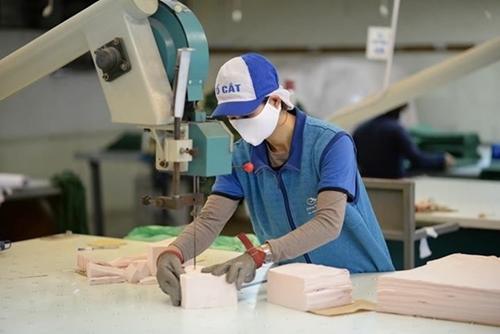Speaking at an online conference between the Government and localities, Truong suggested cutting long-term interest rates, elaborating that garment-textile firms would find it hard to access loans after a year of low business efficiency.
    |
 |
|
Vietnam's garment-textile sector has adopted comprehensive solutions since the beginning of this year when the supply chain was disrupted. (Photo for illustration) |
Enterprises hope for specific policies to be adopted by the Government to assist the support industry in the sector, he added.
According to Truong, localities have supported the sustainable and clean production of the garment-textile industry which, he said, must follow global rules set for the supply chain.
Under the Government management, the sector has reduced non-production costs, especially those for logistics services through the national logistics network, and other non-tariff costs.
The Ministry of Industry and Trade has also helped businesses optimise new-generation free trade agreements (FTAs) through the issuance of guidance and the launch of a portal on those deals.
Vietnam has signed a total of 17 new-generation FTAs, he said, stressing that a number of countries like Japan have reached up to four pacts with Vietnam.
In 2020, Vietnam is the only among the world’s top five garment-textile exporters not to have to cease production.
Although Vietnam’s garment-textile export reached only 35 billion USD against the 39 billion USD recorded last year, the result is still remarkable given the global demand dropping over 22 percent.
Truong highlighted comprehensive solutions adopted by the sector since the beginning of this year when the supply chain was disrupted, saying it has worked hard to ensure jobs for more than 4 million workhands.
Vinatex is the only that does not need to take any allowances for employees to maintain its position in the supply chain, he said.
Source: VNA